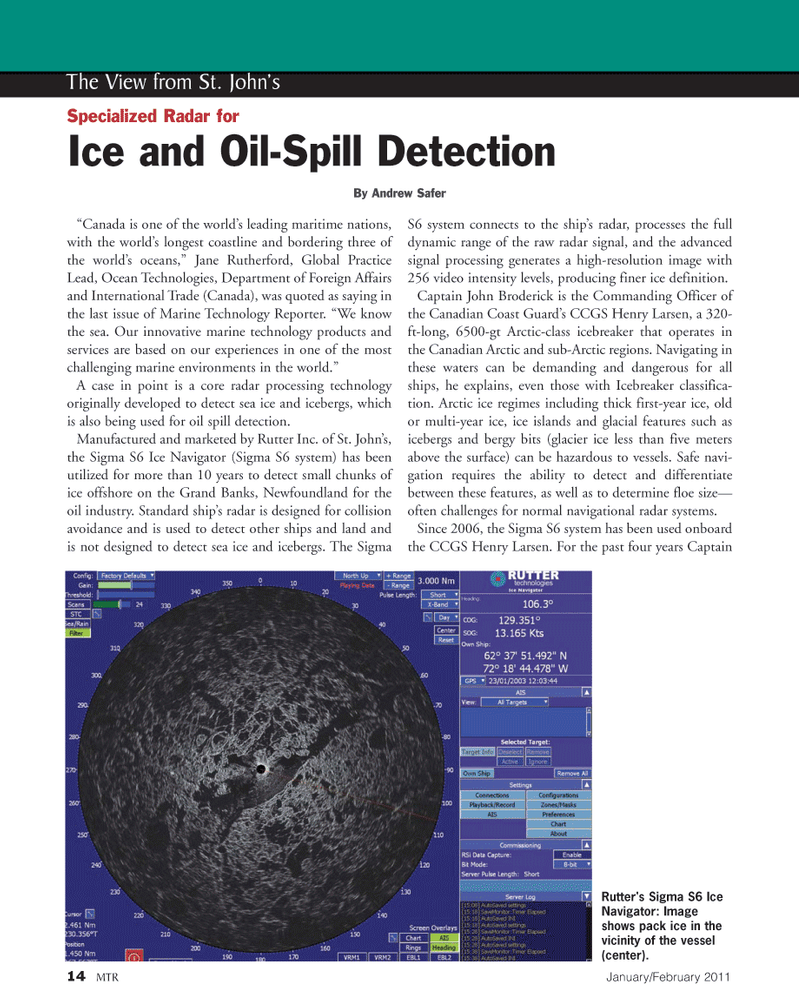
Page 14: of Marine Technology Magazine (January 2011)
Marine Salvage & Recovery
Read this page in Pdf, Flash or Html5 edition of January 2011 Marine Technology Magazine
14 MTR January/February 2011
The View from St. John’s “Canada is one of the world’s leading maritime nations, with the world’s longest coastline and bordering three of the world’s oceans,” Jane Rutherford, Global Practice
Lead, Ocean Technologies, Department of Foreign Affairs and International Trade (Canada), was quoted as saying in the last issue of Marine Technology Reporter. “We know the sea. Our innovative marine technology products and services are based on our experiences in one of the most challenging marine environments in the world.”
A case in point is a core radar processing technology originally developed to detect sea ice and icebergs, which is also being used for oil spill detection.
Manufactured and marketed by Rutter Inc. of St. John’s, the Sigma S6 Ice Navigator (Sigma S6 system) has been utilized for more than 10 years to detect small chunks of ice offshore on the Grand Banks, Newfoundland for the oil industry. Standard ship’s radar is designed for collision avoidance and is used to detect other ships and land and is not designed to detect sea ice and icebergs. The Sigma
S6 system connects to the ship’s radar, processes the full dynamic range of the raw radar signal, and the advanced signal processing generates a high-resolution image with 256 video intensity levels, producing finer ice definition.
Captain John Broderick is the Commanding Officer of the Canadian Coast Guard’s CCGS Henry Larsen, a 320- ft-long, 6500-gt Arctic-class icebreaker that operates in the Canadian Arctic and sub-Arctic regions. Navigating in these waters can be demanding and dangerous for all ships, he explains, even those with Icebreaker classifica- tion. Arctic ice regimes including thick first-year ice, old or multi-year ice, ice islands and glacial features such as icebergs and bergy bits (glacier ice less than five meters above the surface) can be hazardous to vessels. Safe navi- gation requires the ability to detect and differentiate between these features, as well as to determine floe size— often challenges for normal navigational radar systems.
Since 2006, the Sigma S6 system has been used onboard the CCGS Henry Larsen. For the past four years Captain
Specialized Radar for
Ice and Oil-Spill Detection
By Andrew Safer
Rutter's Sigma S6 Ice
Navigator: Image shows pack ice in the vicinity of the vessel (center).

 13
13

 15
15
